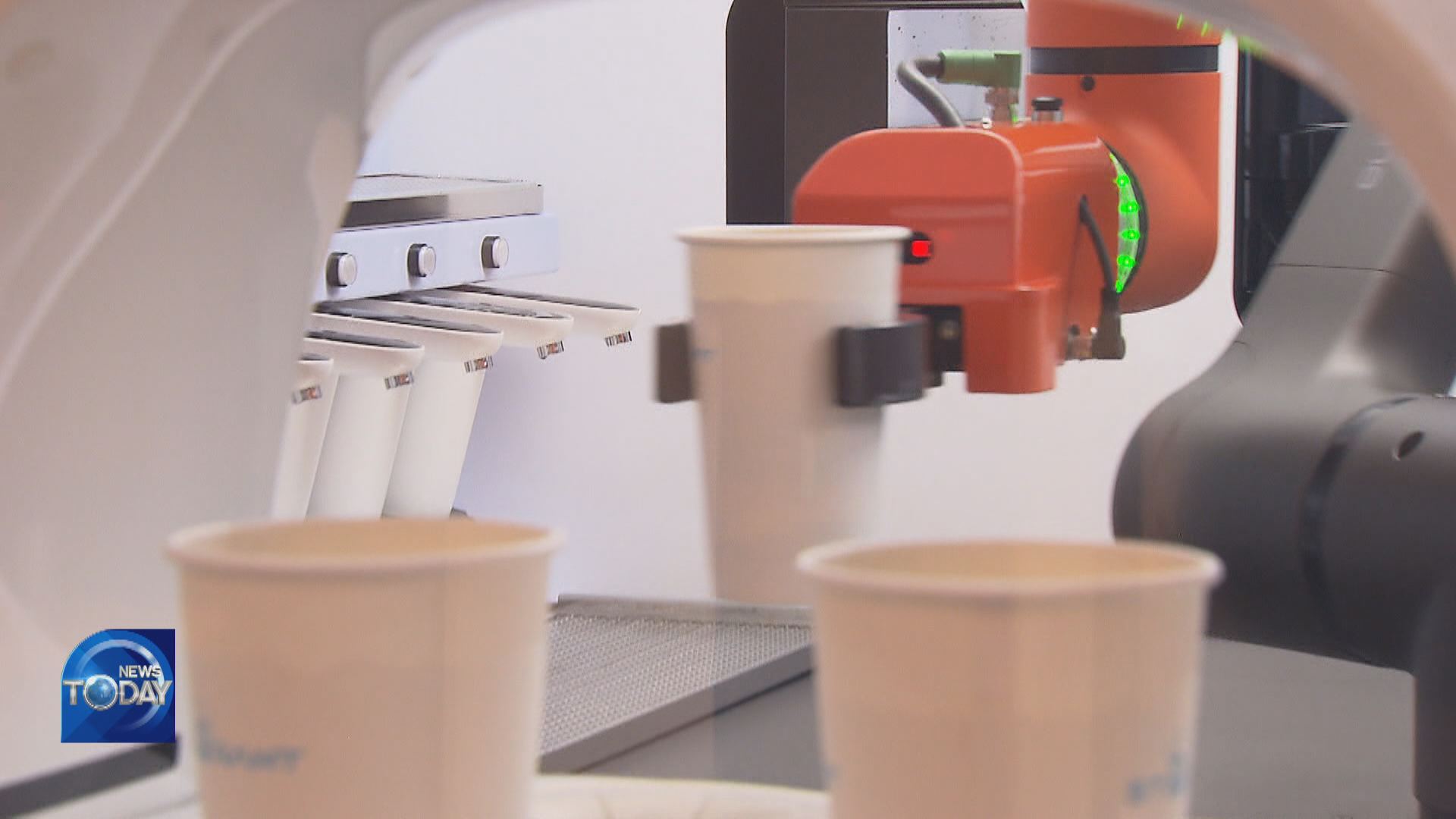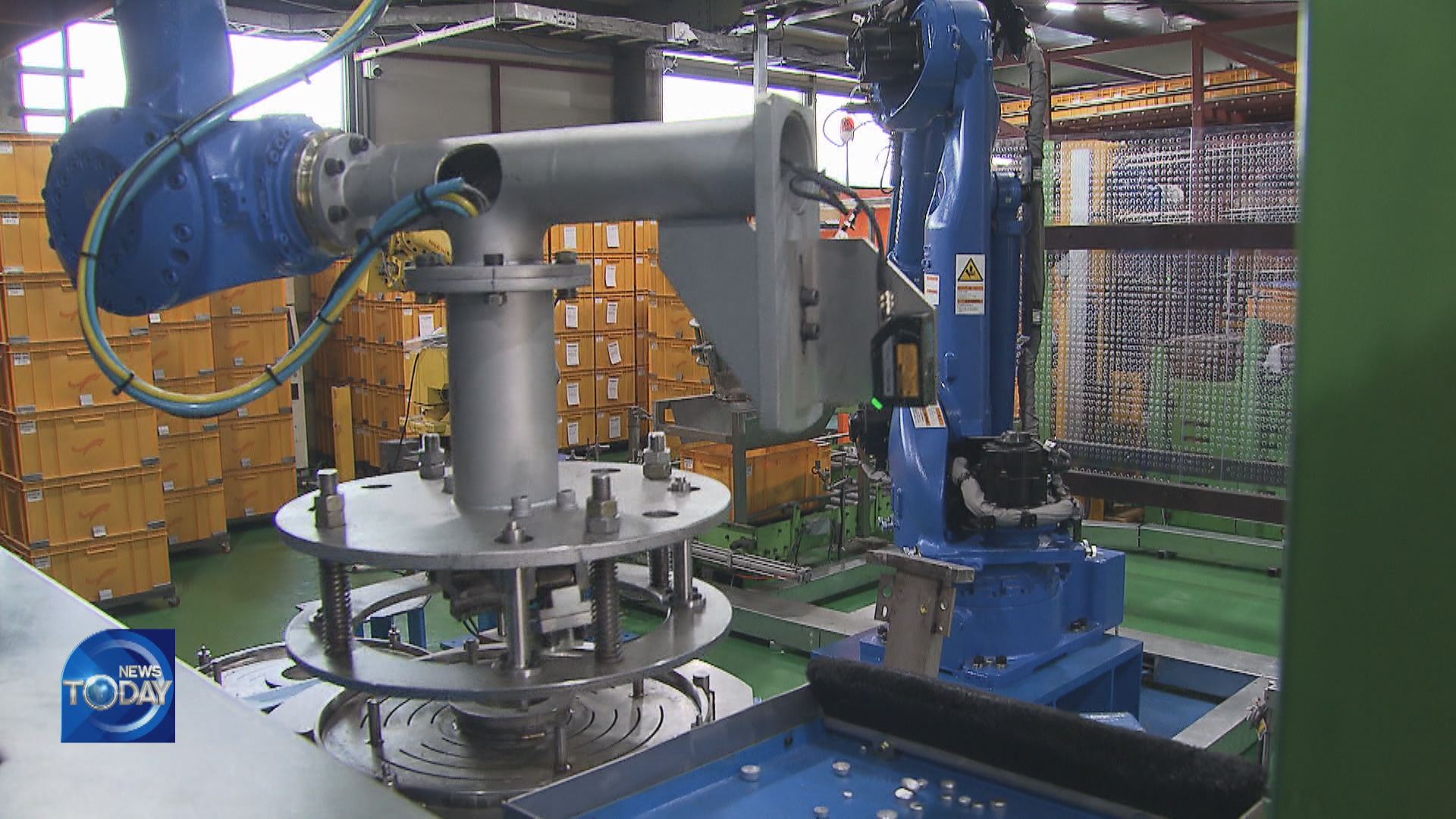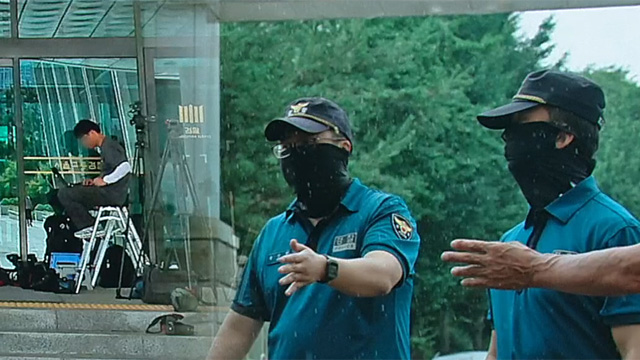EFFORTS TO PROTECT JOBS FROM ROBOTS
입력 2023.04.17 (15:07)
수정 2023.04.17 (16:45)
읽어주기 기능은 크롬기반의
브라우저에서만 사용하실 수 있습니다.
[Anchor Lead]
As automation progresses in various industrial settings, the biggest concern is the significant reduction of human jobs. We explore what preparations are needed for the full-scale robot era.
[Pkg]
Robots move busily at this logistics center run by a conglomerate. They read QR codes on the floor and sort packages by address. They also lift and move entire shelves. Since these robots were introduced at the center, human workers' workload has decreased to just a third of what they used to be.
[Soundbite] Bae Yeon-ho(Coupang) : "We have cut our workers' workload by 65% by introducing cutting-edge logistics infrastructure along with automated robot technologies."
It's still contentious whether robots contribute to a decrease in jobs or wages for humans. For now robots are only used to perform simple tasks, but some say their activities are predicted to expand rapidly in the near future. Others believe new types of jobs for humans will be created even faster, ultimately leading to improved employment figures.
[Soundbite] Prof. Lee Byung-tae(KAIST) : "When productivity and effectiveness increase, demand for people also grows, resulting in more jobs."
Different sectors are reacting differently to the proliferation of robots. The dining, in-person service, retail and simple manufacturing sectors are regarded as having jobs that can be replaced by robots. The introduction of robots changes the demand for existing jobs, which makes job transition training essential.
[Soundbite] Han Joseph(Korea Development Institute) : "With new jobs being created these days, recruitment services that help job seekers utilize their skills in new jobs are needed."
Experts believe for low-skilled workers, who are especially vulnerable to robotization, providing stronger social security by devising measures to guarantee income is essential.
As automation progresses in various industrial settings, the biggest concern is the significant reduction of human jobs. We explore what preparations are needed for the full-scale robot era.
[Pkg]
Robots move busily at this logistics center run by a conglomerate. They read QR codes on the floor and sort packages by address. They also lift and move entire shelves. Since these robots were introduced at the center, human workers' workload has decreased to just a third of what they used to be.
[Soundbite] Bae Yeon-ho(Coupang) : "We have cut our workers' workload by 65% by introducing cutting-edge logistics infrastructure along with automated robot technologies."
It's still contentious whether robots contribute to a decrease in jobs or wages for humans. For now robots are only used to perform simple tasks, but some say their activities are predicted to expand rapidly in the near future. Others believe new types of jobs for humans will be created even faster, ultimately leading to improved employment figures.
[Soundbite] Prof. Lee Byung-tae(KAIST) : "When productivity and effectiveness increase, demand for people also grows, resulting in more jobs."
Different sectors are reacting differently to the proliferation of robots. The dining, in-person service, retail and simple manufacturing sectors are regarded as having jobs that can be replaced by robots. The introduction of robots changes the demand for existing jobs, which makes job transition training essential.
[Soundbite] Han Joseph(Korea Development Institute) : "With new jobs being created these days, recruitment services that help job seekers utilize their skills in new jobs are needed."
Experts believe for low-skilled workers, who are especially vulnerable to robotization, providing stronger social security by devising measures to guarantee income is essential.
■ 제보하기
▷ 카카오톡 : 'KBS제보' 검색, 채널 추가
▷ 전화 : 02-781-1234, 4444
▷ 이메일 : kbs1234@kbs.co.kr
▷ 유튜브, 네이버, 카카오에서도 KBS뉴스를 구독해주세요!
- EFFORTS TO PROTECT JOBS FROM ROBOTS
-
- 입력 2023-04-17 15:07:16
- 수정2023-04-17 16:45:05

[Anchor Lead]
As automation progresses in various industrial settings, the biggest concern is the significant reduction of human jobs. We explore what preparations are needed for the full-scale robot era.
[Pkg]
Robots move busily at this logistics center run by a conglomerate. They read QR codes on the floor and sort packages by address. They also lift and move entire shelves. Since these robots were introduced at the center, human workers' workload has decreased to just a third of what they used to be.
[Soundbite] Bae Yeon-ho(Coupang) : "We have cut our workers' workload by 65% by introducing cutting-edge logistics infrastructure along with automated robot technologies."
It's still contentious whether robots contribute to a decrease in jobs or wages for humans. For now robots are only used to perform simple tasks, but some say their activities are predicted to expand rapidly in the near future. Others believe new types of jobs for humans will be created even faster, ultimately leading to improved employment figures.
[Soundbite] Prof. Lee Byung-tae(KAIST) : "When productivity and effectiveness increase, demand for people also grows, resulting in more jobs."
Different sectors are reacting differently to the proliferation of robots. The dining, in-person service, retail and simple manufacturing sectors are regarded as having jobs that can be replaced by robots. The introduction of robots changes the demand for existing jobs, which makes job transition training essential.
[Soundbite] Han Joseph(Korea Development Institute) : "With new jobs being created these days, recruitment services that help job seekers utilize their skills in new jobs are needed."
Experts believe for low-skilled workers, who are especially vulnerable to robotization, providing stronger social security by devising measures to guarantee income is essential.
As automation progresses in various industrial settings, the biggest concern is the significant reduction of human jobs. We explore what preparations are needed for the full-scale robot era.
[Pkg]
Robots move busily at this logistics center run by a conglomerate. They read QR codes on the floor and sort packages by address. They also lift and move entire shelves. Since these robots were introduced at the center, human workers' workload has decreased to just a third of what they used to be.
[Soundbite] Bae Yeon-ho(Coupang) : "We have cut our workers' workload by 65% by introducing cutting-edge logistics infrastructure along with automated robot technologies."
It's still contentious whether robots contribute to a decrease in jobs or wages for humans. For now robots are only used to perform simple tasks, but some say their activities are predicted to expand rapidly in the near future. Others believe new types of jobs for humans will be created even faster, ultimately leading to improved employment figures.
[Soundbite] Prof. Lee Byung-tae(KAIST) : "When productivity and effectiveness increase, demand for people also grows, resulting in more jobs."
Different sectors are reacting differently to the proliferation of robots. The dining, in-person service, retail and simple manufacturing sectors are regarded as having jobs that can be replaced by robots. The introduction of robots changes the demand for existing jobs, which makes job transition training essential.
[Soundbite] Han Joseph(Korea Development Institute) : "With new jobs being created these days, recruitment services that help job seekers utilize their skills in new jobs are needed."
Experts believe for low-skilled workers, who are especially vulnerable to robotization, providing stronger social security by devising measures to guarantee income is essential.
이 기사가 좋으셨다면
-
좋아요
0
-
응원해요
0
-
후속 원해요
0












![[단독] “윤석열·김용현 등 공모해 군사상 이익 해쳐”<br>…외환죄 대신 일반이적죄 적용](/data/layer/904/2025/07/20250714_3VTJV3.jpg)




이 기사에 대한 의견을 남겨주세요.